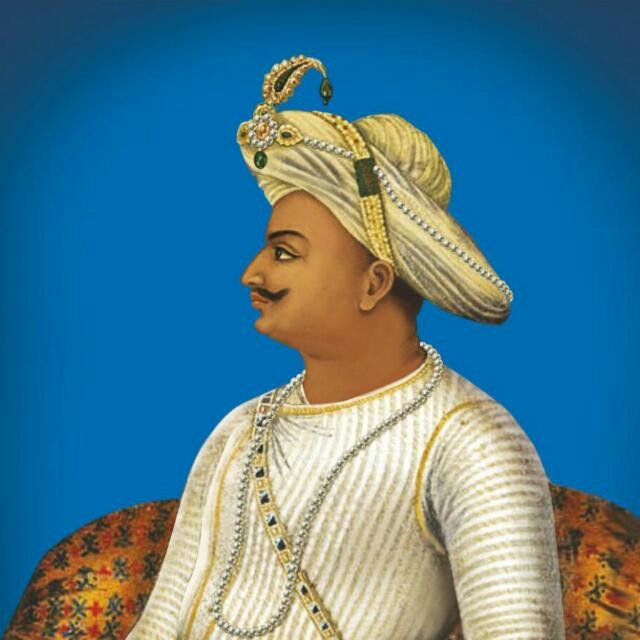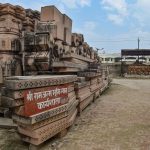Tipu Sultan has time and again been projected as the locus of anti-Hindu vanguard. BJP and allied organizations maintain that the former Mysore ruler was a Muslim fanatic, who demolished temples and converted Hindu’s by force. Yet, the historical record is far more complex than modern politics would have you believe. For example, where does the tale of a Muslim Tipu Sultan as the defender of a Hindu temple fit? While the historians probe the deeds or misdeeds of Tipu Sultan, there is a strong evidence of several temples in Karnataka still cherish their association with him. Many of them prospered under his rule benefiting directly from him. Especially, when he defended many temples from the Marathas, who are often seen in modern India as archetypal Hindutva heroes. Let us have look at the temples that have been directly benefitted by the Ruler.
History
In 1789, the British teamed up with their allies, the Marathas and the Hyderabad Nizam, to pluck out the last thorn in their side: the king of Mysore, Tipu Sultan, who had, more than any other ruler, understood the grave threat the East Indian Company posed. The Marathas and Tipu Sultan did not like each other very much and their hostilities predated this war. In fact, Hyder Ali, Tipu’s father, first made his mark by taking the fort of Devanhalli (close to Bengaluru) from the Marathas in a bitterly fought battle.
In 1791, therefore, the Marathas, under the command of Raghunath Rao Patwardhan invaded the Mysore district of Bednur. Here, they proceeded to sack the Sringeri Mutt.
Sharadamba Temple, Sringeri
Attacking temples during war wasn’t exactly unusual (for example, the Maratha attack on the Tirupati shrine in 1759 is little remembered). But this was no ordinary place of worship. It had been founded a thousand years before by the father of Hindu Advaita philosophy, Adi Shankaracharya. The monk set up an abbey in each corner of the subcontinent: Sringeri in the South, Puri in the East, Dwaraka in the West and Joshimath in the North.

Given this lineage, the Sringeri mutt had been patronised by rulers – both Hindu and Muslim – ever since it was founded. Tipu continued this tradition and maintained a close relationship with the Mutt, sending it valuable gifts and awarding it tax-free land. In fact, in his personal correspondence, Tipu would address head reverentially as “Jagadguru” or “ruler of the world”.
This prestige meant the temple was also wealthy, which was probably why the Marathas sacked it, the first time it was to see such a calamity in its millennia-long history. The Marathas stripped the monastery of its considerable wealth, killed many Brahmins and desecrated the idol of the temple’s presiding deity, the goddess Sharada.
After the attack, the Swamy, who fled the sack, wrote urgently to Tipu asking for his help in reconsecrating the idol of Sharada. Tipu replied back angrily, writing in Sanskrit, “People do evil smiling but will suffer the penalty in torments of agony.” The Sultan also made monetary arrangements for the consecration of the Goddess and also sent along his token gifts for the idol.
The temple has maintained its correspondence with Tipu in its Archives even today.
Mookambika Temple, Kollur

The Kollur Sri Mookambika Temple is in the communally sensitive Dakshina Kannaada district performs “Salam Mangalaharathi”, a special Puja in the name of the “Tiger of Mysore” every day. “Salam Mangalaharathi” is performed to the diety every evening to commemorate Tipu ultan’s Visit to the Temple. The “Salam Managalaharathi” is an oral undocumented tradition folloed by the temple.
The ruler, also offered a bell to Shankaranarayana temple, 10 Kilometers away from the Mookambika temple.
Nanjangud Srikanteswara Temple
Nanjangud, near Mysore, hosts a massive Srikanteswara Temple, which has a Shiva longa made of emerald, donated by Tipu Sultan.

According to the temple literature Tious pet elephant, which was going blind found its vision restored after it was made to perform a ritual at the temple. Hailing the miracle, Tipu called the diety as Hakim Nanjunda and made the emerald Shiva linga donation.
Sri Ranganatha Temple, Mysuru

Srirangapatnam became the de facto capital of Mysore under Hyder Ali and Tipu Sultan. When Tipu finally dispensed with the charade of deference to the legitimate Wodeyar Maharaja who was actually his captive, and proclaimed the “Khudadad State” under his own kingship, Srirangapatnam became de jure the capital of this just and ably managed kingdom. Srirangapattanam flourished during this period.
Tipu Sultan patronized the famous Sri Ranganatha SWamy Temple, he donated silver vessels to the Sri Ranganatha temple. Temple records show that Tipu Sultan has performed some rituals and pooja’s in the temple.
Apart from these Temples, records show that Tipu Sultan during his reign has patronized morethan 120 temples. And of course, there is 10-day grand Dasara celebrations continued with a member of the Wodeyar royal family presiding over the festivities, which were continued even after he became the King.
Records of forcible religious conversions have not been documented anywhere in Mysore. Thousands of plays on Tipu have been staged during the late 19th century and 20th centuries reigining him as the King of secularism. History textbooks and popular literature, like the Amar Chitra Katha comics, were unequivocal in viewing him as a brave martyr who went down fighting the British. Even the concise Kannada biography on Tipu that the Rashtriya Swayamsevak Sangh published in the late 1970s, in its “Bharata Bharati” series, only praises him as a patriot and heroic personality, without offering any negative comment on him. But the it is in recent times that Tipu’s image is being changed from a secular freedom fighter to a Muslim Tyrant.
Must Read : Vallarpadam Church – The Basillica of Our Lady of Ransom
Must Read : Santhome Basilica, Chennai – Historically significant Church by the Shore









